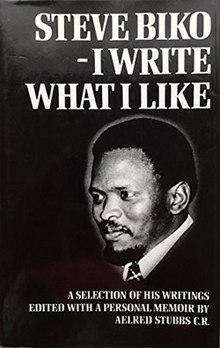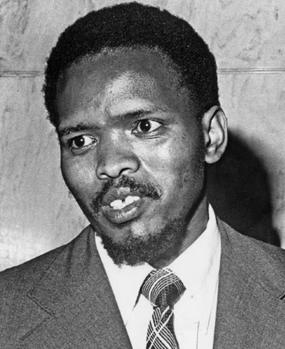
Bantu Stephen Biko OMSG was a South African anti-apartheid activist. Ideologically an African nationalist and African socialist, he was at the forefront of a grassroots anti-apartheid campaign known as the Black Consciousness Movement during the late 1960s and 1970s. His ideas were articulated in a series of articles published under the pseudonym Frank Talk.
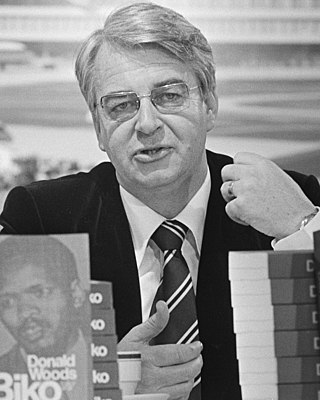
Donald James Woods was a South African journalist and anti-apartheid activist. As editor of the Daily Dispatch, he was known for befriending fellow activist Steve Biko, who was killed by police after being detained by the South African government. Woods continued his campaign against apartheid in London, and in 1978 became the first private citizen to address the United Nations Security Council.
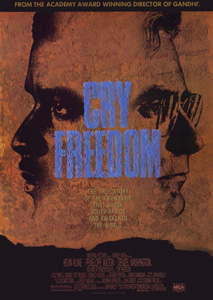
Cry Freedom is a 1987 epic biographical drama film directed and produced by Richard Attenborough, set in late-1970s apartheid-era South Africa. The screenplay was written by John Briley based on a pair of books by journalist Donald Woods. The film centres on the real-life events involving South African activist Steve Biko and his friend Woods, who initially finds him too radical, and attempts to understand his way of life. Denzel Washington stars as Biko, while Kevin Kline portrays Woods. Penelope Wilton co-stars as Woods' wife Wendy. Cry Freedom delves into the ideas of discrimination, political corruption, and the repercussions of violence.
The Black People's Convention (BPC) was a national coordinating body for the Black Consciousness movement of South Africa. Envisaged as a broad-based counterpart to the South African Students' Organisation, the BPC was active in organising resistance to apartheid from its establishment in 1972 until it was banned in late 1977.

The Socialist Party of Azania (SOPA) was a political party in South Africa adhering to Black Consciousness theory. In the 2004 general elections, it received 0.1% of the vote and no legislatorial seats at either the national or provincial levels.
Lewis Ricardo Gordon is an American philosopher at the University of Connecticut who works in the areas of Africana philosophy, existentialism, phenomenology, social and political theory, postcolonial thought, theories of race and racism, philosophies of liberation, aesthetics, philosophy of education, and philosophy of religion. He has written particularly extensively on Africana and black existentialism, postcolonial phenomenology, race and racism, and on the works and thought of W. E. B. Du Bois and Frantz Fanon. His most recent book is titled: Fear of Black Consciousness.

The Black Consciousness Movement (BCM) was a grassroots anti-apartheid activist movement that emerged in South Africa in the mid-1960s out of the political vacuum created by the jailing and banning of the African National Congress and Pan Africanist Congress leadership after the Sharpeville Massacre in 1960. The BCM represented a social movement for political consciousness.
[Black Consciousness'] origins were deeply rooted in Christianity. In 1966, the Anglican Church under the incumbent, Archbishop Robert Selby Taylor, convened a meeting which later on led to the foundation of the University Christian Movement (UCM). This was to become the vehicle for Black Consciousness.
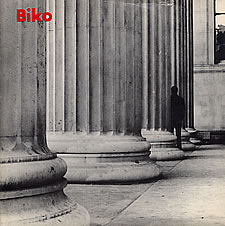
"Biko" is an anti-apartheid protest song by English rock musician Peter Gabriel. It was released by Charisma Records as a single from Gabriel's eponymous third album in 1980.
The South African Students' Organisation (SASO) was a body of black South African university students who resisted apartheid through non-violent political action. The organisation was formed in 1969 under the leadership of Steve Biko and Barney Pityana and made vital contributions to the ideology and political leadership of the Black Consciousness Movement. It was banned by the South African government in October 1977, as part of the repressive state response to the Soweto uprising.
James Thomas Kruger was a South African lawyer and politician of Welsh descent who was part of the conservative National Party government which championed apartheid. He rose to the position of Minister of Justice and the Police in the cabinet of Prime Minister John Vorster from 1974 to 1979. He was also President of the Senate from 1979 until 1980, when it was abolished.
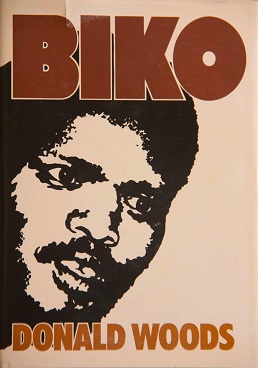
Biko is a biography about Black Consciousness Movement leader and anti-apartheid activist Steve Biko. It was written by the liberal white South African journalist Donald Woods, a personal friend of Biko. Donald Woods was forced into exile for attempting to expose the truth surrounding Biko's death. It was the inspiration for the 1987 film Cry Freedom.
Richard Turner, known as Rick Turner, was a South African academic and anti-apartheid activist who was murdered, possibly by the South African security forces, in 1978. Nelson Mandela described Turner "as a source of inspiration".
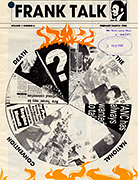
Frank Talk was a political magazine established in 1984 in South Africa, and arising out of the student-led anti-apartheid movement of the 1970s and 80s.
Black existentialism or Africana critical theory is a school of thought that "critiques domination and affirms the empowerment of Black people in the world". Although it shares a word with existentialism and that philosophy's concerns with existence and meaning in life, Black existentialism is "is predicated on the liberation of all Black people in the world from oppression". Black existentialism may also be seen as method, which allows one to read works by African-American writers such as W. E. B. Du Bois, James Baldwin, and Ralph Ellison in an existentialist frame. As well as the work of Civil Rights Activists such as Malcolm X and Cornel West. Lewis Gordon argues that Black existentialism is not only existential philosophy produced by Black philosophers but is also thought that addresses the intersection of problems of existence in black contexts.
Saleem Badat is a South African sociologist, higher education policy specialist, and researcher. He is Research Professor in Humanities at the University of Kwazulu-Natal.
Dr. Maitshwe Nchuape Aubrey Mokoape was a South African anti-apartheid activist and a leader of the Pan-Africanist Congress and Black Consciousness Movement. He was first arrested and detained at the age of 15. He studied and worked alongside political anti-apartheid activist Steve Biko. In post-apartheid South Africa, Mokoape became a physician.
Aelred Stubbs was an Anglican priest and monk, influential in the campaign against apartheid in South Africa during the 1970s.
Winnie Motlalepula Kgware was a South African anti-Apartheid activist within the Black Consciousness Movement (BCM). She was elected as the first president of the Black People's Convention (BPC), a BCM-affiliated community-based organisation in 1972.
Zanempilo Community Health Care Centre (ZCHC), infamously known as the "Biko Clinic", was the first primary health care centre initiative outside of the public sector in South Africa. It is located in Zinyoka Village, near King William's Town in the Eastern Cape. The clinic was established as one of the Black Community Programmes (BCPs) spearheaded by Steve Biko and Mamphela Ramphele.
The SASO/BPC trial, also known as the Black Consciousness trial, was an apartheid-era legal trial in South Africa which resulted in the conviction of nine Black Consciousness activists from the South African Students' Organisation (SASO) and Black People's Convention (BPC). The trial ran from 31 January 1975 to 21 December 1976 in the Pretoria Supreme Court.
